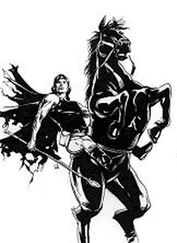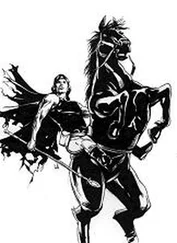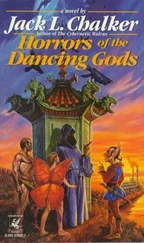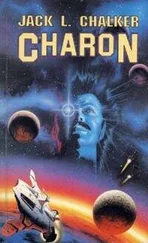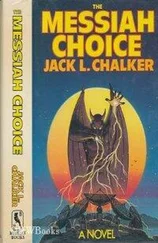Jack Chalker - Priam's Lens
Здесь есть возможность читать онлайн «Jack Chalker - Priam's Lens» весь текст электронной книги совершенно бесплатно (целиком полную версию без сокращений). В некоторых случаях можно слушать аудио, скачать через торрент в формате fb2 и присутствует краткое содержание. Год выпуска: 1999, ISBN: 1999, Издательство: Del Rey / Ballantine, Жанр: Фантастика и фэнтези, на английском языке. Описание произведения, (предисловие) а так же отзывы посетителей доступны на портале библиотеки ЛибКат.
- Название:Priam's Lens
- Автор:
- Издательство:Del Rey / Ballantine
- Жанр:
- Год:1999
- ISBN:0-345-40294-4
- Рейтинг книги:3 / 5. Голосов: 1
-
Избранное:Добавить в избранное
- Отзывы:
-
Ваша оценка:
- 60
- 1
- 2
- 3
- 4
- 5
Priam's Lens: краткое содержание, описание и аннотация
Предлагаем к чтению аннотацию, описание, краткое содержание или предисловие (зависит от того, что написал сам автор книги «Priam's Lens»). Если вы не нашли необходимую информацию о книге — напишите в комментариях, мы постараемся отыскать её.
Priam's Lens — читать онлайн бесплатно полную книгу (весь текст) целиком
Ниже представлен текст книги, разбитый по страницам. Система сохранения места последней прочитанной страницы, позволяет с удобством читать онлайн бесплатно книгу «Priam's Lens», без необходимости каждый раз заново искать на чём Вы остановились. Поставьте закладку, и сможете в любой момент перейти на страницу, на которой закончили чтение.
Интервал:
Закладка:
She’d been very athletic and very confident, it was true, but she’d still emerged from the ivory tower and thought of this as something romantic, youthful fieldwork upon which to build a career. Most academics had never come face to face with situations in which split-second decisions might cause their own death. It had to be a tough awakening, and they were only starting.
N’Gana looked at his watch. They had already synchronized on the island; now he checked each to ensure that the watches were still in synch at least to the minute. They were; computers might not govern these watches, but they had designed and built them.
“We have at least six more hours of daylight,” he told them, looking and sounding like his old self. “I think we ought to make what time we can. The sooner we get to our objective and retrieve what must be retrieved and get that information up to the others, the sooner we can be concerned with getting back.”
There wasn’t much argument on that score, and while they’d had a trying morning, it felt good to actually be doing something. N’Gana turned to Father Chicanis. “Which way, Father?”
The priest pointed east. “Stay parallel with the coast and not too far inland. Since that was Capri Point back there, it means we’ve got a hundred and fifty or so kilometers to where we need to be, give or take. It will be difficult to get lost if we keep close to the ocean and keep going east.”
“Remember that,” the colonel said to the others. “If anything happens and we become separated, that is the way there, and, from there, the reverse is the way back.” He thought a moment. “Allowing a bit for unforeseeable problems, I would say we have a week’s good walk here. Since I don’t have a backpack I’ll take the point, the sergeant will take the rear. You see or hear anything unusual, or anything helpful for that matter, don’t hesitate. And keep a good lookout for anything edible. We want to save the preserved stuff for when we absolutely have to have it. If humans can exist down here in the wild, then so can we. Father, you know the local and imported plants here, so you’re the one who says what’s edible and what’s not.”
They started walking, and were quickly enmeshed in the tall grass that was two to three meters tall, well over N’Gana’s head. It wasn’t hard to follow the leader in this stuff since he was so large a man and trampled down quite a swath, but this made Harker start thinking about how easy it would be for any enemy to be there in the tall grass, even in force, and remain invisible until it was too late.
“Was it like this when you were living here, Father?” Harker asked the priest.
Chicanis shook his head. “No, not like this. These grasses were pretty well tamed, cut, managed, and in most cases we thought it was plowed up. It’s good protection, but it’s tough finding landmarks. I hope this won’t be the norm all the way.”
“There were some groves of trees going along for some distance not too far inland on the survey photos, if I remember,” Mogutu commented in a low tone that the others readily took up. “They looked like fruit trees of some sort.”
“They were. Tropical fruits, mostly,” Chicanis responded. “They were quite a favorite delicacy in the good old days. There were a number of fruits grown very near the coast because the regular sea breezes gave them added moisture year-round. I don’t know, though, how you’re going to find anything at all down here walking through this. Even I am lost.”
“The colonel’s got a magnetic compass and there’s manual sighting gear adjusted for Helena in my pack,” Harker told him. “Good thing, too, since if it had been in the other boat we’d really be in a fix. The compass is adjusted to true north from its usual east-northeast on this planet, and should be adequate.”
By the end of an hour or so they were all soaked with sweat and feeling the strain of the tropical climate and particularly the hot, humid air. Harker was just about to suggest a break when they stepped out of the grasslands and into a dense forest. There hadn’t been many noticeable in-sects in the grass, but now the very air seemed made of them, and it was nearly impossible to keep themselves from being covered in them. Harker and Socolov both began coughing from having breathed in tiny bugs.
N’Gana came back and called a break. The others couldn’t imagine wanting to linger a single moment in that spot.
“Let’s get back into the grass,” Harker suggested, feeling like his entire face and arms were covered with tiny insects.
“Okay, just inside,” N’Gana responded. “Key to that large tree over there. Drop the packs and remain with them. I’m going to try and knock some of that fruit down, or climb up and get it.”
“I can help,” Father Chicanis volunteered. “Wait until I drop the backpack. No use giving you all the local names for things, but you’ll all like those. Don’t pick up any that have fallen, though. The insects will have pretty well moved in. Most of them don’t touch fruit that’s growing, though. It has a kind of natural defense, even if it was genetically designed.”
“Insects this bad in the old days?” N’Gana asked him.
“Not that I remember, but there were always a lot of them. No big game, no big animals at all, plenty of insects. They aren’t really insects, either, if you examine them closely, but they occupy the same niche. We just called them all bugs. That’s the trouble with tropical climates—what’s great for people is even better for the pests.”
It was clear that people hadn’t been in this area for a very long time, so it was pretty easy to pick enough of the oval-shaped fruit and bring it to the camp by the armload.
“Funny the insects don’t like it over here,” Harker commented, glad to be able to breathe real air.
“Oh, there are plenty in the grass, but they don’t go where they can’t eat. The range of most of those bugs is only a few dozen meters,” Chicanis answered him. “We’ll get some here when we crack open the fruit, but don’t let them bother you. Even if you swallow a few, just think of them as, well, protein. Most aren’t even native. They snuck in with the fruit. The native ones go more for the grasses and do a lot of tunneling.”
“Thanks a lot,” Harker responded. In one brief comment Chicanis had managed to make him paranoid about where he was sitting while also making the swarms even less appetizing to think about.
The one who seemed happiest about the bugs was Hamille. The feathery but serpentine creature opened that huge oval of a mouth and just seemed to inhale the flying bugs as fast as it could. When full, it would sink to the ground and start spitting. Out came tiny forms that looked like berries and others that looked like tiny gemstones that crawled or wriggled.
“The ones spit out are the native bugs, I assume,” Mogutu commented more than asked.
“Yes. Our friend can digest most protein-based bugs and such, even raw meat and what we would think of as carrion, but I think the native bugs are a bit indigestible even for it,” N’Gana replied. “At least Hamille will have the same ease with local cuisine as we, even if we eat different things. That’s good, because half or more of its food was in our lost packs.”
He used the knife to slice open one of the melonlike fruits. It revealed a bright yellow-orange pulp with a core of tiny white seeds. The thing tasted quite sweet and proved very filling. The second one turned out to have some bugs in it and, as it turned out, about one in three of them had a lot of visitors.
“I don’t understand it,” Chicanis said, shaking his head in wonder. “They used to avoid anything on the vine or die.”
“They’re adapting,” Harker responded, a little worriedly. “They’re evolving to meet changing circumstances. Too much grass, food that’s too concentrated.
Читать дальшеИнтервал:
Закладка:
Похожие книги на «Priam's Lens»
Представляем Вашему вниманию похожие книги на «Priam's Lens» списком для выбора. Мы отобрали схожую по названию и смыслу литературу в надежде предоставить читателям больше вариантов отыскать новые, интересные, ещё непрочитанные произведения.
Обсуждение, отзывы о книге «Priam's Lens» и просто собственные мнения читателей. Оставьте ваши комментарии, напишите, что Вы думаете о произведении, его смысле или главных героях. Укажите что конкретно понравилось, а что нет, и почему Вы так считаете.





